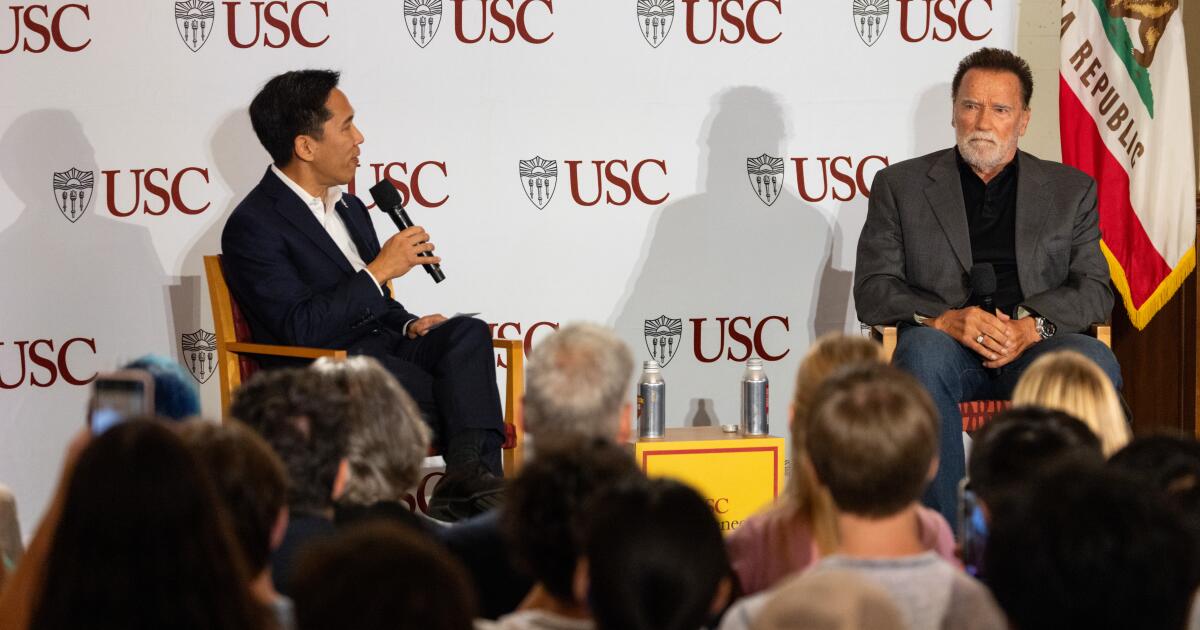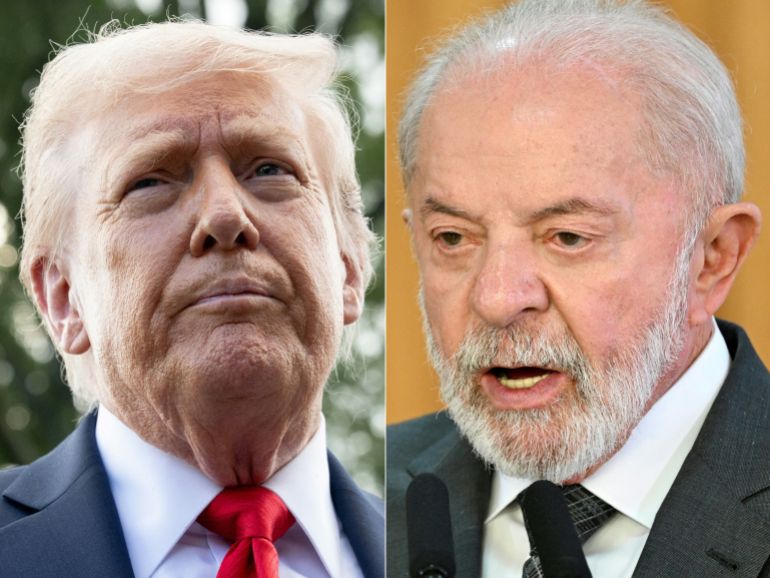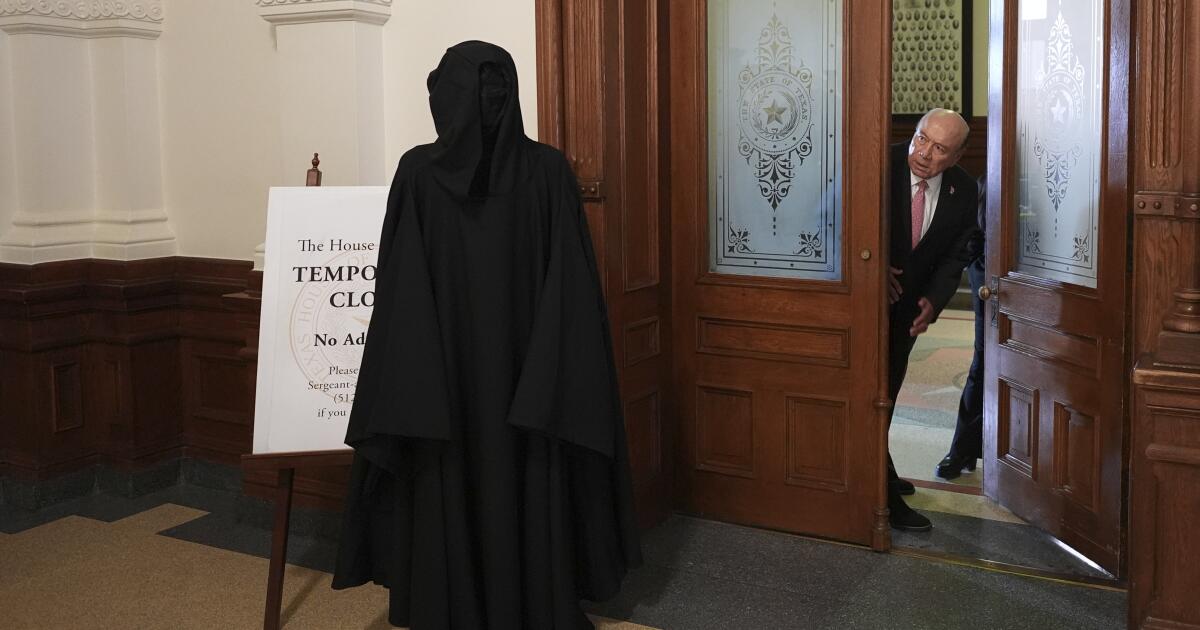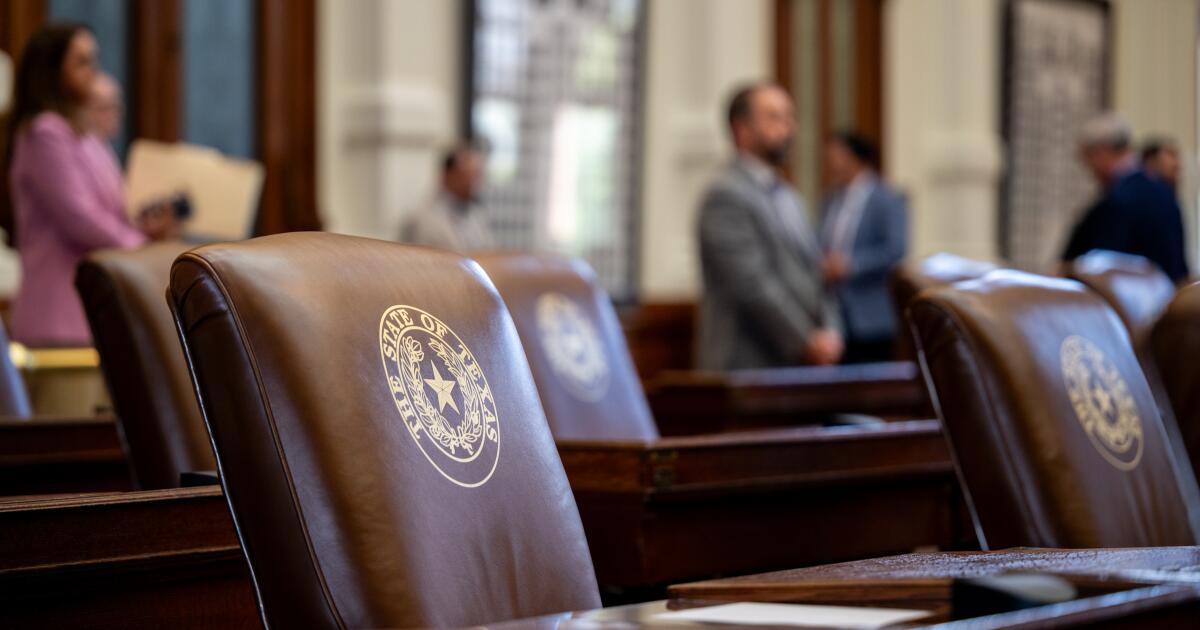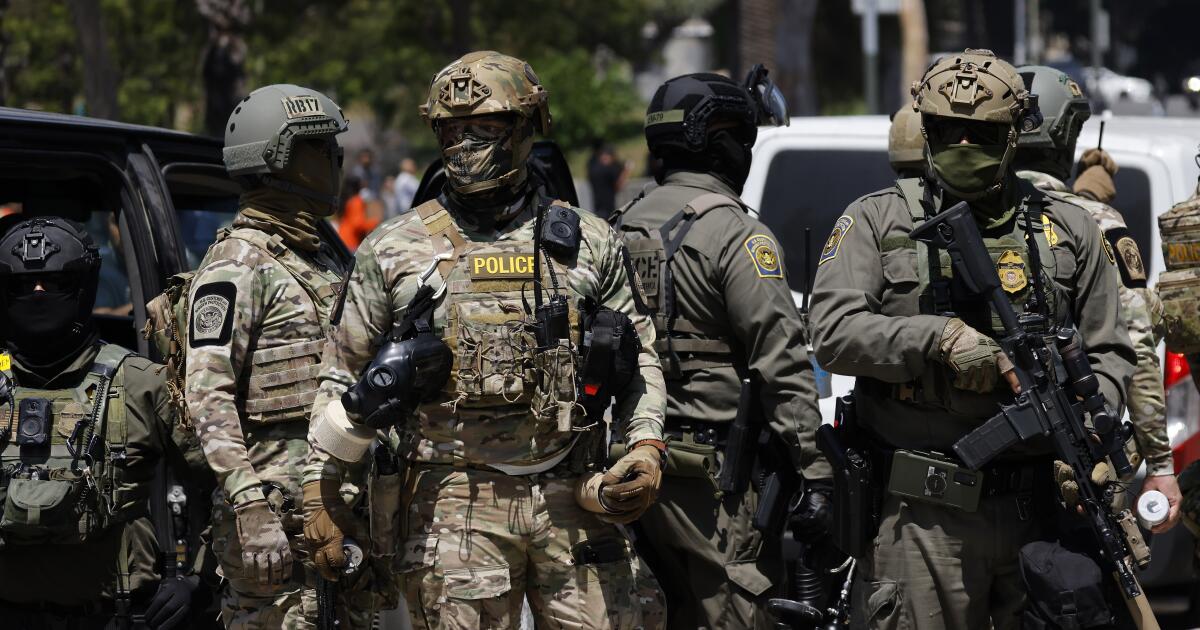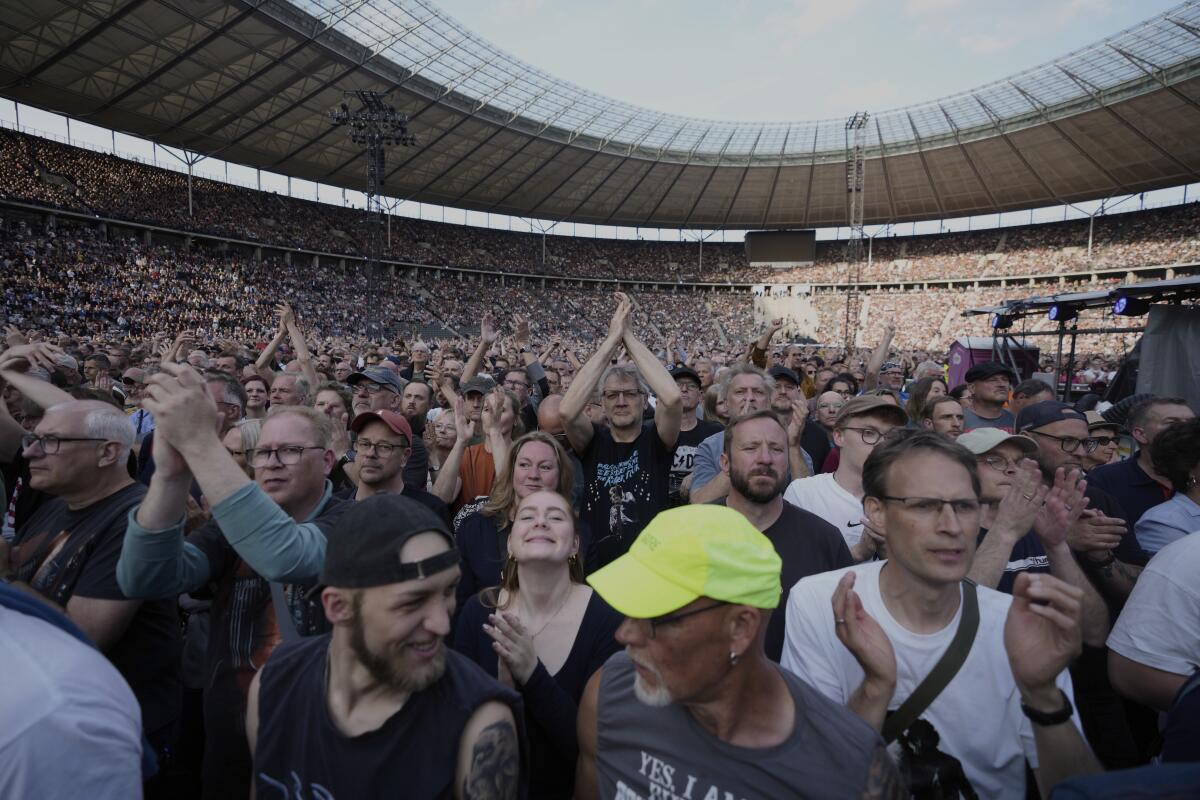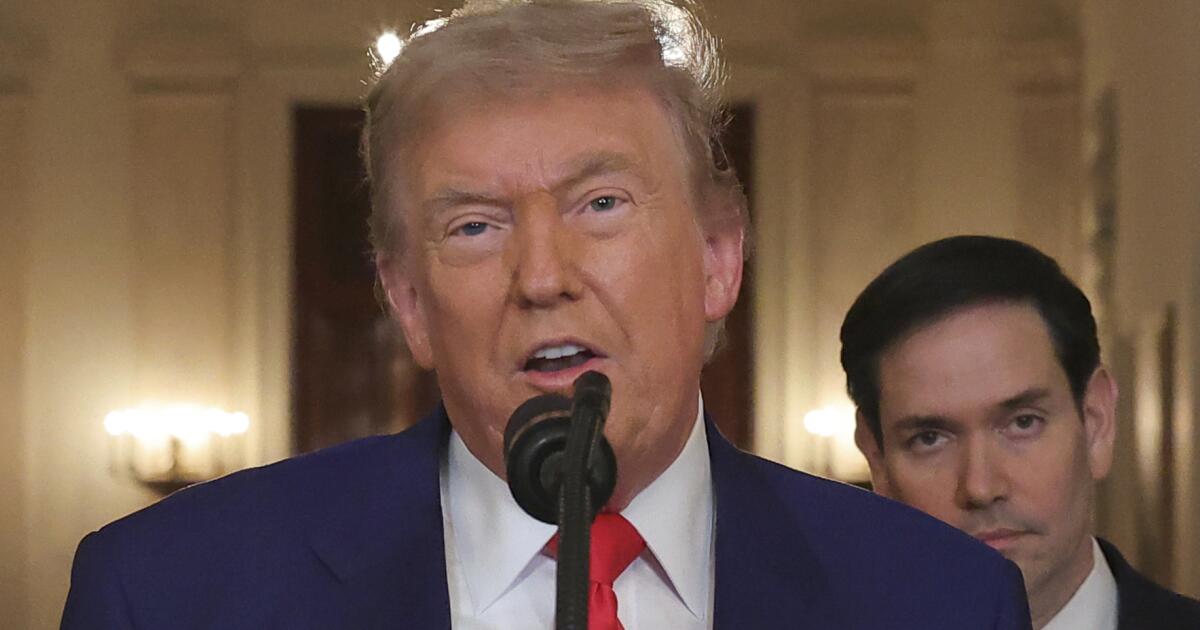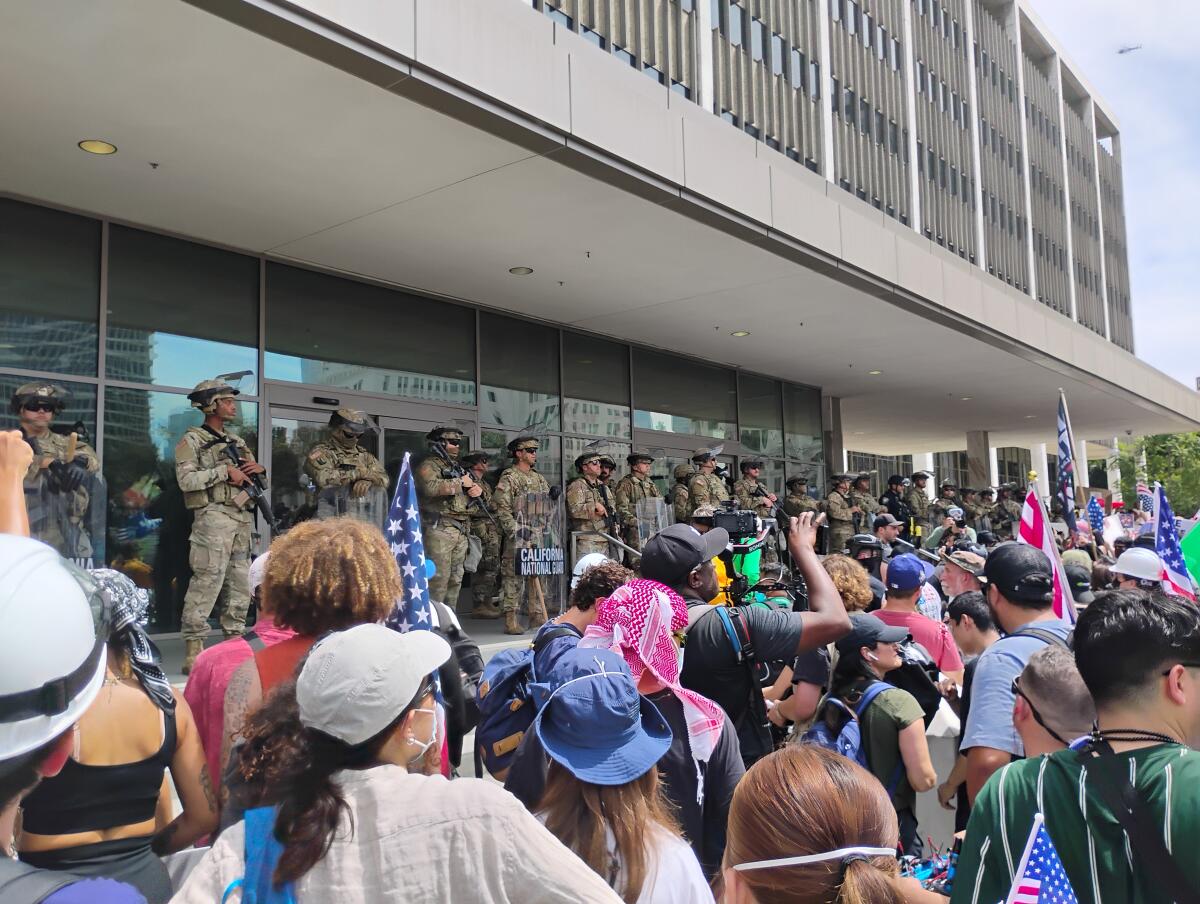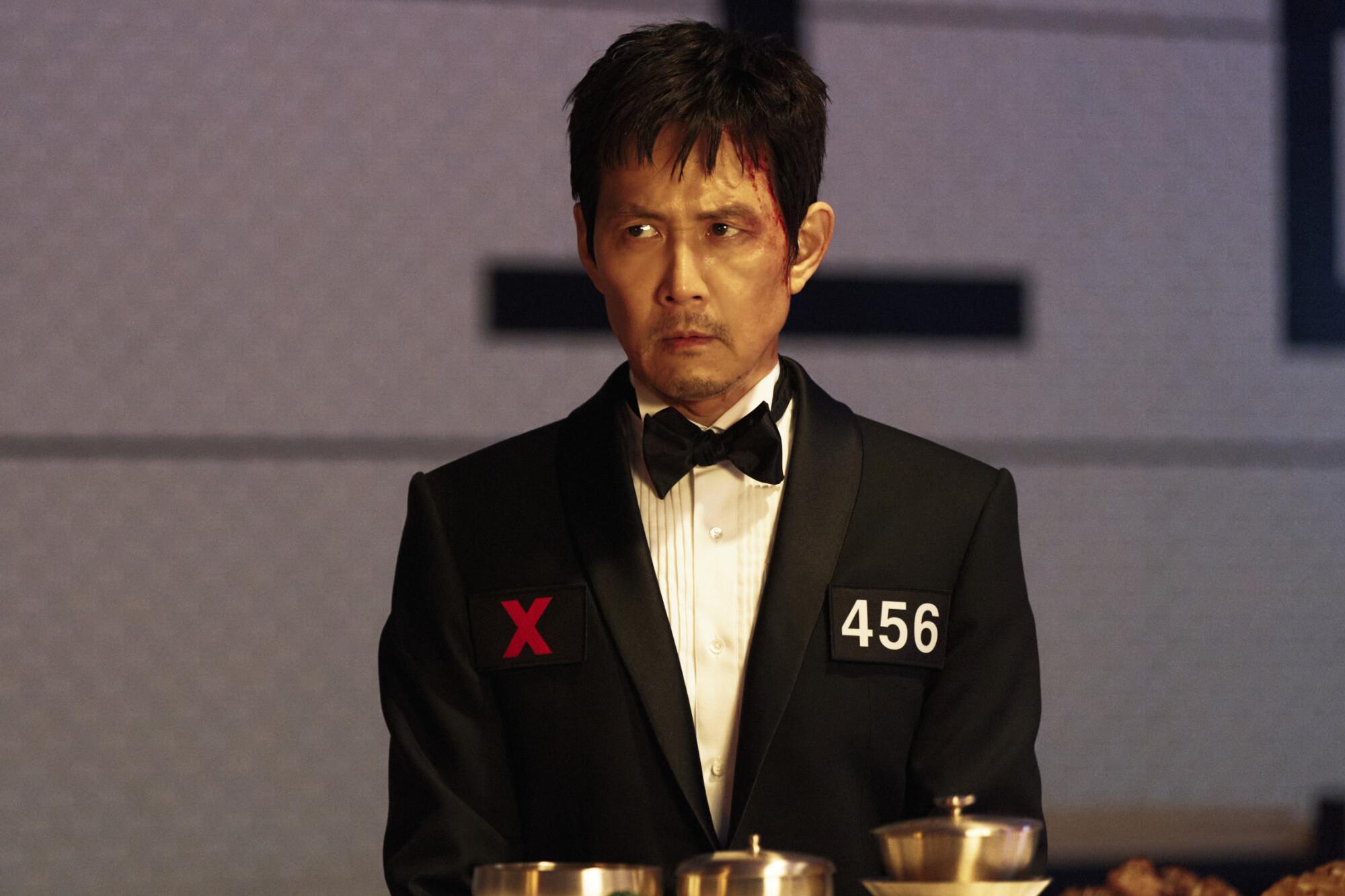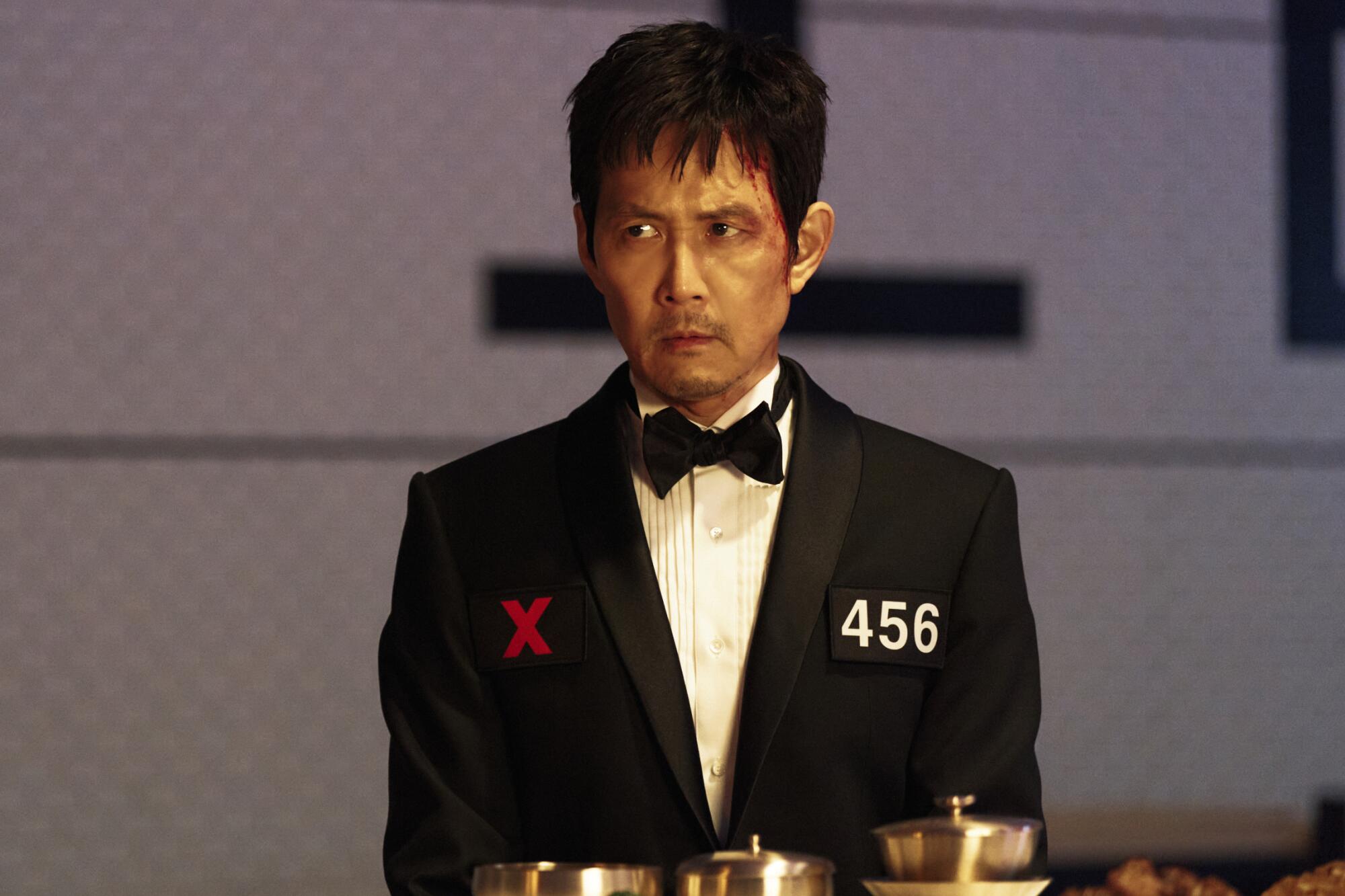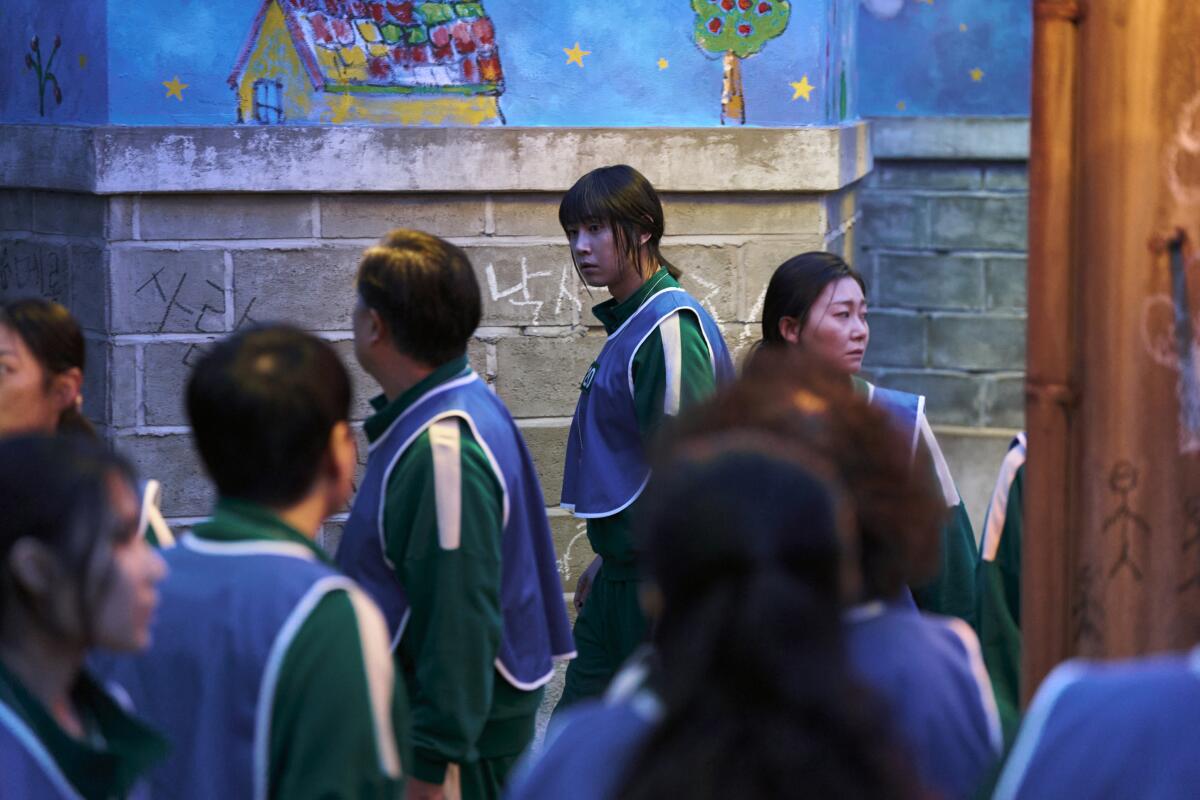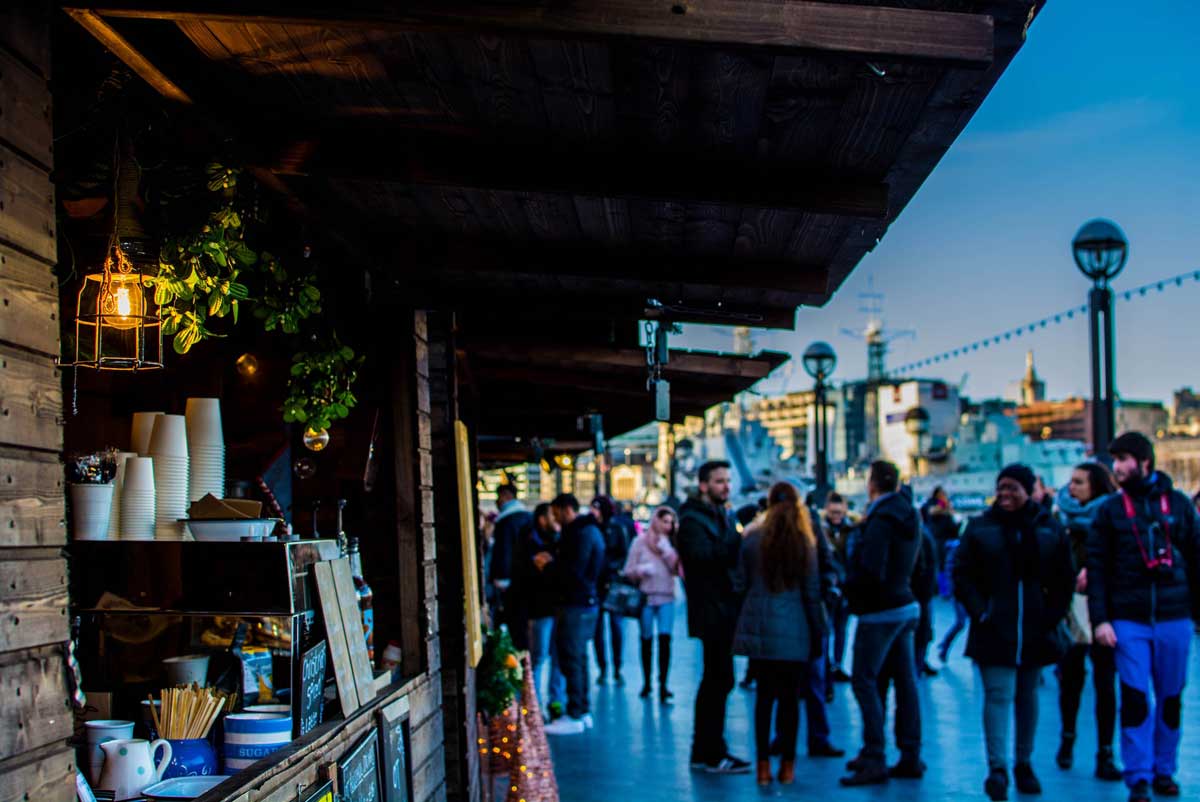In a brazen move, Republicans in Texas have set out to redraw the state’s congressional map — an effort to boost President Trump and the GOP in the 2026 midterm elections.
Gov. Gavin Newsom has threatened to respond in kind, gerrymandering blue California to give Democrats a lift and offset the Lone Star lunge for power.
That would mean scrapping the political lines drawn by an independent citizens commission, which voters created nearly two decades ago to take line-drawing away from the state’s politicians.
Our columnists Mark Z. Barabak and Anita Chabria disagree strongly, but amicably, on the wisdom and implications of Newsom’s threatened move. Here they hash it out.
Barabak: Gavin Newsom — or the 48th president of the United States, as he fancies himself — is perhaps second only to Donald Trump when it comes to surfing a political wave. And so it is with redistricting and retribution.
It may set partisan Democratic hearts to racing — which is part of Newsom’s intent — but it’s a bad move for all sorts of reasons. Not least, ignoring the will of California voters, who resoundingly told the state’s self-dealing politicians no mas!
I understand the fight-fire-with-fire attitude that animates partisan support for the get-even talk by 48, er, Newsom. But the danger is causing even more widespread damage.
Over the years, a lot of zeitgeist-y moves by the headline-hungry Newsom have come to naught. This is another that belongs on the scrap heap.
Chabria: I agree that the Vegas odds are on the side of this tit-for-tat being nothing more than a partisan headline-grabber.
But.
There is a larger and more important question here that boils down to how seriously you believe our democracy is in jeopardy.
If, Mark — as I think you are inclined to at least hope — this too shall pass and our next election will be free and fair, however it may land, then the idea of gerrymandering our congressional districts can be nothing but appalling. This is especially true in California, one of the few states in which the people have voted to ensure our electoral maps are drawn with nonpartisan fairness in mind.
If, like me, however, you think we are on a knife’s edge of losing our democracy to authoritarianism — or at least an oligarchy where hate is wielded for power — then gerrymandering becomes a form of peaceful resistance.
Newsom recently said, “We can act holier-than-thou. We can sit on the sidelines, talk about the way the world should be, or we can recognize the existential nature that is this moment” — which gives you an idea of his thinking, and frankly, mine.
I’ll dive into that more, but maybe that’s where we start. Do you think our democracy is sound and what we’re witnessing is just a period of discontent that will pass without lasting harm?
Barabak: I sure hope so.
I yield to no one in my disgust with Trump and concern about what he’s doing. He’s authoritarian. Autocratic. Arrogant. Anti-democratic. And that’s not even getting past the letter “A.”
But actions like the one Newsom threatens on redistricting don’t take place in a vacuum, which is important to bear in mind. Short-term tactical gains can result in long-term pain.
For instance: In 2013 Democrats were so upset about Republican blockading of President Obama’s judicial and executive branch nominations that Senate Majority Leader Harry Reid invoked the “nuclear option.” At Reid’s behest, the Senate narrowly voted to change its rules and disallow the filibustering of presidential nominees.
The result is Defense Secretary Pete Hegseth, Health and Human Services Secretary Robert F. Kennedy Jr. and a whole clown car of Trump Cabinet members.
And while Democrats explicitly said the rule change would not apply to the Supreme Court, once the door was open Republicans shouldered their way through and eliminated the filibuster for those nominees as well. The result is Neil Gorsuch, Brett Kavanaugh, Amy Coney Barrett and the high court’s 6-3 Trump-coddling conservative super-majority.
Those who fight fire with fire risk getting badly burned.
If Democrats want a war over redistricting, Republicans have a lot more ways to gerrymander and potentially gain seats — in places such as Florida, Missouri and Ohio — than Democrats.
Chabria: No doubt. But, and this is as low as it gets, I’ll pay the price of a Hegseth, maybe even two, if it really does save democracy. Here’s the reality: The only hope of a Congress that will curb Trump through the democratic process is shifting at least some power to Democrats in the 2026 election.
If Texas Republicans, under pressure from Trump, manage to redraw as many as five new GOP-leaning seats — and it doesn’t blow up in their faces, which it could — the move would boost the chances the House remains a Trump entourage and the prospect of authoritarianism goes from brush fire to wildfire.
The truth is that gerrymandering is far more common than most realize. Kevin Johnson, an expert with the Election Reformers Network, wrote recently that “In the 1990s, only 40% of the seats in the House of Representatives were considered a sure thing for one party or the other, now that figure is 83%.” That’s because most states gerrymander.
Really, the only truly competitive races take place in states such as California that have independent, nonpartisan folks drawing the election maps. So to play devil’s advocate, we’ve already lost to gerrymandering in the U.S. and California just doesn’t know it.
That’s a problem that could be solved if a future president and Congress wanted to do so. But it requires getting to a future president and Congress. I always put this on the record: I care neither about Republicans or Democrats. I care about democracy.
If California gerrymandered, helped turn Congress into a real check against authoritarianism and left fixing gerrymandering for later, would it really be so bad?
Barabak: Your crystal ball must be less hazy than mine.
I’m not all convinced that even a gain of five Texas House seats would guarantee GOP control of the House. (And let me put this on the record: I think what Trump and his Texas handmaidens are doing is thoroughly reprehensible.)
Since World War II, the out-party has picked up an average of more than two dozen House seats in midterm elections. Democrats need a gain of three to seize control.
There’s even, as you suggest, a chance Republicans’ political pigginess backfires by spreading their voters too thin, creating districts that Democrats might pick up if there’s a big enough blue wave.
Speaking of moves backfiring, it’s no sure bet Californians would approve Newsom’s gerrymander effort if he put it to a vote in a special election to override the commission.
Surrendering power to politicians is a pretty big ask in today’s environment. And it’s not as though Newsom has a deep reservoir of goodwill to draw upon; just look at his poll numbers.
He went to South Carolina to, allegedly, campaign for Democratic House candidates, even though the state hasn’t a single competitive contest. California has about 10 races that look to be at least somewhat competitive — yet you don’t see fellow Democrats clamoring for Newsom to drop by their districts.
Chabria: I don’t have a crystal ball. What I do have is a deep well of foreboding, but an optimist’s hope that your blue wave, power-to-the-people scenario happens.
In the meantime, Newsom said Friday that redistricting “is not a bluff,” and he is exploring multiple ways to do it.
On that list is a legal gamble. Our current redistricting laws say maps have to be drawn fairly every 10 years, after the census — but doesn’t specifically say we can’t gerrymander in between. Newsom is basically suggesting cheating with a sunset clause: Immediate redistricting that benefits Democrats, but that would expire when the regular redistricting happens.
It’s drastic, and may just wind up tied up in courts indefinitely.
But I am frustrated that politicians, pundits and even regular people continue to treat this administration as just politics as usual, and I appreciate that Newsom is not, even if part of it is driven by personal gain for a 2028 presidential bid. Perhaps our democracy has been on the brink before, but that makes this cliff no less dangerous. We the people need to think outside of our regular reactions to Republicans vs. Democrats or cultural wars or partisan divides or any of the far more harmless stressors that have plagued our system in the past.
What I like about Newsom’s jab is that it forces us to have conversations like this one, and ask ourselves how do we fight differently?
Because this fight is different.
Barabak: This may sound Pollyannaish, but I think there’s nothing about these frightful times that can’t be remedied at the ballot box.
Texas may have a competitive U.S. Senate race next year. If Texans don’t like the ruthlessness of GOP lawmakers and their power grab, they can send a message by electing a Democrat, helping the party overcome the odds and take control of the chamber. That would put a check on Trump, regardless of whether Republicans hang onto the House.
It’s in the hands of voters. If democracy is going to be protected and preserved, it’s up to them. Not scheming politicians.
